Hormones
All information about "Hormones" and the related magazine articles can be found here.
Our articles are written clearly and link to scientific studies where relevant. This is how we meet our own standards: we regularly deliver new, high-quality content for you—free of charge, no sign-up required, with the highest possible benefit to you.

Zinc, an essential trace element
Zinc is involved in many processes in the human body. Read here to find out why it is so important for us and what vegetarians/vegans should look out for.

Vitamins for hair loss
Biotin, vitamin D, zinc and selenium: When certain nutrients are lacking, hair suffers. Hair health can be supported by the right diet

Alternative treatments for bladder infections
Urinary tract infections are common. In most cases, the infection can be cured easily, and some home remedies can help the healing process.

The effects of the yam root
Yam is a staple food around the world. The yam is a staple food in many parts of the world, similar to the potato.

How curcumin works
Turmeric owes its bright yellow colour to the plant compound curcumin. But curcumin is much more than that.

Women in competitive sport
The effect of oestrogen and progesterone on training success has long been underestimated. The definable phases of muscle building, increased risk of injury and muscle recovery can now be used to create a successful training plan.
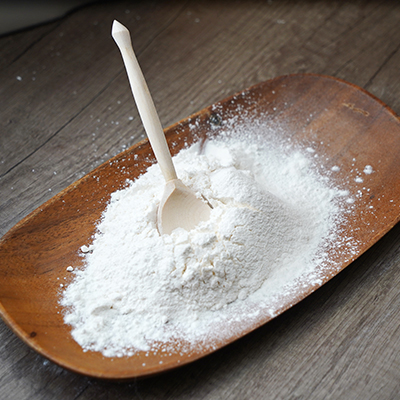
How galactose works
This simple sugar works differently to glucose and therefore has special properties that make it particularly interesting for diabetics. Find out more now

To do this, the body needs the amino acid L-tyrosine.
L-tyrosine is involved in many processes in the body, including the production of the hormones dopamine and adrenaline.

How to keep your gut flora healthy
What makes a healthy gut? And how can gut bacteria and the right diet help you stay healthy? Here are the answers to the most important questions about a healthy gut.

Vitamins for beautiful skin
Vitamins play an important role in our health - and our appearance. With the right nutrients, you can make your skin glow.
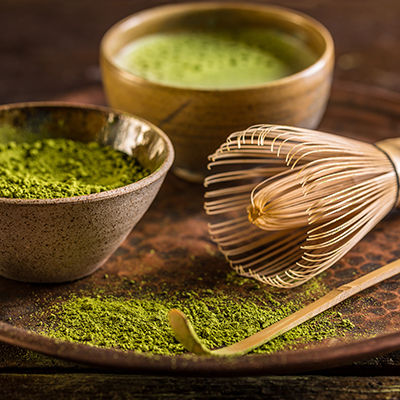
Green tea is so healthy
Green tea is considered healthy and is also said to help with weight loss. So it's not surprising that there are now many dietary supplements containing green tea extract. What is behind these supposed effects?

What is Astragalus extract?
Astragalus root extract has been used in traditional Chinese medicine for thousands of years.

What makes collagen special
Collagen is best known for its role in the connective tissue of the skin. Skincare products or supplements containing collagen are often advertised as having an "anti-ageing" effect. But the protein can do more.

What is L-Arginine?
L-Arginine is a term that is often used in connection with weight training supplements. Read on to find out what it is and how it can benefit athletes in particular.
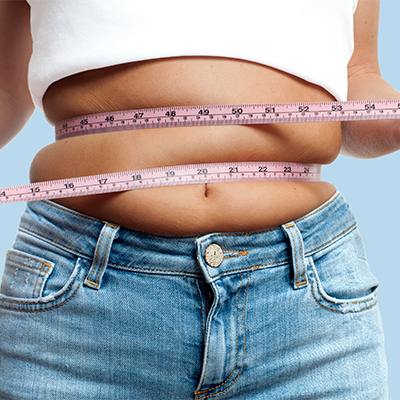
Can vitamin B12 help you lose weight?
Vitamin B12 is involved in many metabolic processes in the human body. Many people find that weight gain and B12 deficiency often occur together. Why is this the case?

Vitamin B12 - what it is and how to recognise a deficiency
Vitamin B12 is an important vitamin that can only be obtained from certain foods. Find out which processes the body needs it for and how to make sure you get enough.
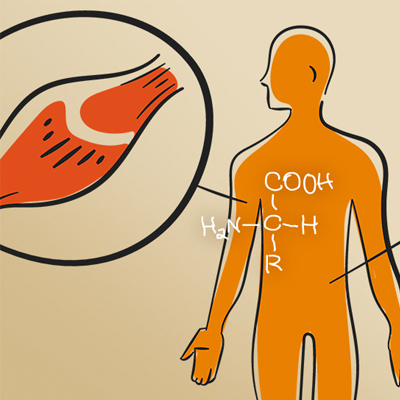
What are amino acids?

What are B vitamins - and what does the body need them for?
B vitamins are needed by the body to maintain vital functions. You can find out exactly what tasks they perform and how to recognise a deficiency here.
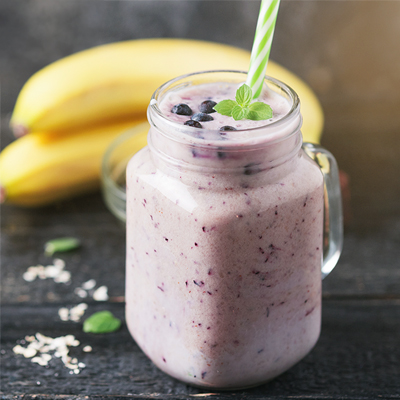
Ashwagandha Power Smoothie
For an energising start to the day. Just put all the ingredients in the blender and drink!
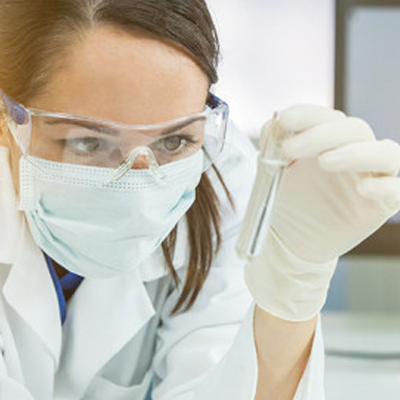
He who researches, finds
How can the SARS-CoV-2 virus be stopped? A team from the Charité Berlin and the University of Bonn has found a possible answer to this question in the field of nutritional supplements.
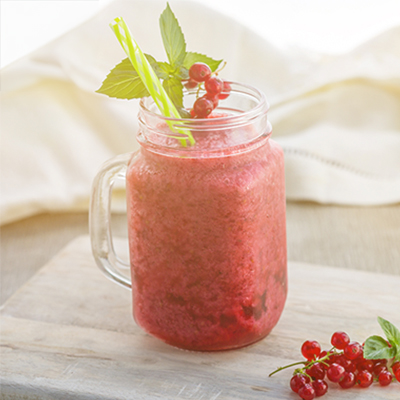
Fruity Red Currant Smoothie
Get a delicious summer beauty boost with our Red Currant Smoothie. Just put all the ingredients in the blender and drink!

It's never too early to learn!
Many people suffer from spring fever in the spring. Or is it just superstition? Find out what the phenomenon is all about.

How do phagocytes help us?
Bacteria, viruses and other pathogens are on the menu for these immune guardians. Here we explain exactly what they do.
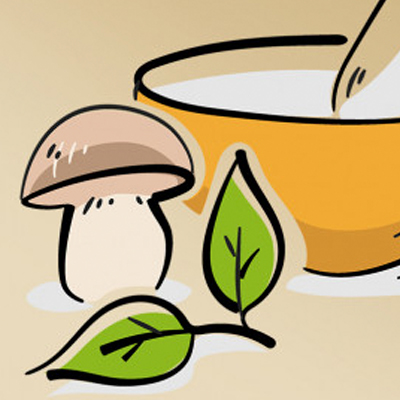
What are medicinal mushrooms?
If you want to find out how to get the best out of medicinal mushrooms with alcohol, you've come to the right place. We don't have any recipes for white wine sauce, but we do have the most important information about these natural remedies.
All about Hormones: Your Key to a Balanced Life
Have you ever wondered why you sometimes feel energised and focused, while other days you are tired and irritable? The answer often lies in the complex workings of our hormones. They work in the background and influence our organs and our well-being. In our guide to hormones – the key to a balanced life – you will learn how these invisible regulators shape your everyday life and how you can optimise your hormonal balance to get the best out of every day.
What role do hormones play in the human body?
The human hormone system has a very complex structure. The most important hormones play a central role in controlling and regulating a variety of vital bodily functions: These chemical messengers are produced by various endocrine glands (hormone glands) and released into the bloodstream to interact with specific target cells in the body and achieve a specific effect.
Through these interactions, the important neurotransmitters influence a variety of processes, including body growth and development, metabolic functions, reproduction, mood and responses to stress [9]. They also help to adjust the body to external and internal changes and maintain a homeostatic balance [9]. In short, the hormonal system is crucial for maintaining a healthy and functioning organism.
How are hormones produced and regulated?
Various hormones regulate our metabolism, body temperature, salt and water balance, circulation, behaviour and much more [1]. But how does the body know which different hormones it should produce in order to be in balance? Hormones are produced by hormone glands (endocrine glands). These glands, such as the thyroid, adrenal glands and pancreas, are part of the endocrine system and are responsible for synthesising and releasing specific hormones. The production and release of our own hormones occurs in response to complex feedback mechanisms that are influenced by various factors such as the nervous system, other hormones in the body and external environmental factors [4].
This regulation ensures that hormone levels remain within an optimal range to support the body's functions. So-called regulatory circuits control the production of most hormones. The various endocrine glands stimulate or inhibit each other [7]. Hormones can also act on their own gland of origin or a higher-level gland and influence the quantity of hormones. Many hormones of the hypothalamus are also regulated with the help of such ‘feedback loops’, in which the amount of a hormone that has already been produced promotes or curbs its own production. The hypothalamus is a part of the brain that plays an important role in controlling the endocrine system, producing hormones that stimulate or inhibit the pituitary gland to release other hormones [7].
What are the different types of hormones?
There are different types of hormones in the body, including steroid hormones, peptide hormones, amino acid derivatives and thyroid hormones [9]. These are produced by various endocrine glands (hormonal glands) and tissues and regulate a variety of physiological processes. Steroid hormones such as oestrogen and testosterone influence reproductive and metabolic functions.
Peptide hormones such as insulin and glucagon are crucial for the regulation of blood sugar levels and energy metabolism. Amino acid derivatives such as adrenaline and thyroxine have an effect on metabolism, heart rate and energy production. Thyroid hormones such as thyroxine regulate metabolic functions and body growth.
How do hormones affect mood and emotions?
Certain hormones influence mood and emotions by acting on the nervous system and the brain [9]. Serotonin, for example, a neurotransmitter often associated with happiness and well-being, can be influenced by hormones. An imbalance of cortisol, for example, which is released during stress, can lead to mood swings. Certain hormones such as oestrogen and progesterone, which vary during the menstrual cycle, can also affect mood.
What are the effects of hormones on metabolism and weight?
Other hormones such as insulin, thyroid hormones and cortisol directly affect metabolism by controlling the absorption, storage and utilisation of nutrients such as carbohydrates, fats and proteins [10]. Insulin, for example, lowers blood glucose levels by transporting glucose from the blood into the cells where it is used for energy or stored as glycogen.
An imbalance of these hormones can affect metabolic processes in the endocrine system, which can lead to metabolic disorders such as diabetes or hypothyroidism, which in turn can be linked to weight gain [11]. Certain hormones such as leptin and ghrelin influence feelings of hunger and satiety by signalling to the brain when we should eat and when we feel full. If this regulatory system is disrupted, this can lead to food cravings, overeating and weight gain.
What influence do hormones have on the menstrual cycle?
Hormones such as oestrogen and progesterone regulate the menstrual cycle. During the cycle, hormone levels rise and fall, which influences ovulation, the thickness of the uterine lining and the onset of menstruation. At the beginning of the menstrual cycle, the ovaries tend to produce less oestrogen, whereas shortly before ovulation they produce a lot [2]. Oestrogen stimulates the formation of the uterine lining, while progesterone supports its build-up and is important for preparing for a possible pregnancy. If fertilisation does not take place, hormone levels fall, which leads to the shedding of the uterine lining and the onset of menstruation.
Many women find the time before and during their menstruation problematic and painful. Find out here how magnesium can support you with menstrual cramps.
How can hormones influence growth and development?
Hormones play an essential role in human growth and body development by regulating various organ systems and controlling important processes such as bone growth, muscle development and reproductive maturation. Testosterone in particular is crucial as it regulates sex differentiation during embryonic development and puberty, promotes secondary sexual characteristics such as penile growth and sperm production, influences the transformation of vellus hair into mature hair follicles and supports both muscle growth and bone formation [3].
What endocrine disorders are there and how are they treated?
There are various disorders of the endocrine system that can affect the body and health. Some of the most common hormonal disorders are [12]:
Underactive thyroid (hypothyroidism): This is where the thyroid gland does not produce enough of the thyroid hormone thyroxine, which can lead to symptoms such as fatigue, weight gain and dry skin. The thyroid gland is often treated by taking thyroid hormone supplements. Selenium can also be used as a supportive measure.
Hyperthyroidism (overactive thyroid): This is the opposite of hypothyroidism, in which the thyroid gland produces too much thyroid hormone thyroxine. Symptoms can include weight loss, nervousness and an accelerated heartbeat. Treatment may include medication, radioiodine therapy or, in some cases, surgery.
Diabetes: Diabetes is a metabolic disorder characterised by a lack of insulin or insulin resistance. Treatment often involves a combination of dietary changes, physical activity, medication and insulin injections.
Adrenal insufficiency: With this problem, the adrenal glands do not produce enough hormones such as cortisol and aldosterone. Treatment usually consists of lifelong intake of hormone replacement preparations.
Pituitary disorders: The pituitary gland in the brain produces various hormones that regulate the human body. It is controlled by the hypothalamus. Impairments in this area can lead to a variety of problems, including an imbalance in other hormone production. Treatment depends on the specific impairment of the endocrine system and may include the administration of replacement hormones, medication or, in some cases, surgery.
The treatment of endocrine disorders is usually carried out under medical supervision and is based on the identification of the underlying cause and a personalised therapy.
What role do hormones play during pregnancy?
During pregnancy, hormones play a crucial role in the regulation of various physiological processes. They not only influence the development of the foetus, but also the adaptation of the mother's organs to the pregnancy. Hormones such as oestrogen and progesterone help to build up the uterine lining and prepare it for implantation of the fertilised egg [13].
During pregnancy, the body also produces hormones such as hCG (human chorionic gonadotropin), which supports the production of progesterone and maintains the pregnancy. Other hormones such as prolactin prepare the breasts for milk production [13]. Overall, hormones regulate a variety of processes during pregnancy that are crucial for the well-being of mother and child. Hormone production takes place in various organs such as the ovaries and the pituitary gland.
How can we regulate and balance hormones naturally?
Regulating and balancing hormones can be achieved naturally through various lifestyle and dietary adjustments:
Regular physical activity: exercise can help regulate hormone levels and improve well-being [14].
Adequate sleep: An adequate amount of sleep is crucial for hormone production and maintaining balance [15].
Stress management techniques: Meditation, yoga and relaxation exercises can help reduce stress and support hormone balance [16].
Balanced diet: A diet rich in vegetables, fruit, wholemeal products and healthy fats can help regulate hormones [17]. Try an alkaline diet.
Limit sugary and processed foods: Reducing sugary and processed foods can help minimise fluctuations in blood sugar levels and improve hormone balance [17].
Certain herbs, supplements such as omega-3 fatty acids and vitamins can also support hormone balance. However, before taking supplements, it is advisable to consult a doctor to consider possible interactions or contraindications.
[1] https://www.internisten-im-netz.de/fachgebiete/hormone-stoffwechsel/regulation-der-hormone.html
[2] https://www.internisten-im-netz.de/fachgebiete/hormone-stoffwechsel/hormondruesen-und-moegliche-erkrankungen/hypothalamus/
[3] https://www.hormonspezialisten.de/sexualhormone/testosteron/funktionen
[4] https://www.studysmarter.de/studium/medizin/innere-medizin/endokrines-system/
[5] https://www.msdmanuals.com/de-de/profi/endokrine-und-metabolische-krankheiten/grundlagen-der-endokrinologie/%C3%BCbersicht-%C3%BCber-das-endokrine-system
[6] https://flexikon.doccheck.com/de/Endokrines_System
[7] https://www.spektrum.de/lexikon/ernaehrung/endokrine-regulation/2470
[8] https://www.bund.net/fileadmin/user_upload_bund/publikationen/fluesse/fluesse_hormonaktive_substanzen_hintergrund.pdf
[9] https://www.endocrine.org/-/media/endocrine/files/patient-engagement/misc_other/hormone_guide_5x5_grid_25x25_english.pdf
[10] https://pubmed.ncbi.nlm.nih.gov/9556085/
[11] https://www.deutsches-schilddruesenzentrum.de/gut-leben-mit-diabetes-experteninterview-mit-prof-zieren/
[12] https://www.frauenaerzte-im-netz.de/erkrankungen/hormonstoerungen/therapie/
[13] https://www.yourhormones.info/topical-issues/hormones-of-pregnancy-and-labour/
[14] https://www.tk.de/techniker/magazin/life-balance/aktiv-entspannen/stress-abbauen-mit-sport-und-bewegung-2093232?tkcm=ab
[15] https://www.aerzteblatt.de/archiv/1375/Neue-Erkenntnisse-der-Chronobiologie-Wie-Hormone-Schlaf-und-Stoffwechsel-regulieren
[16] https://www.daserste.de/information/wissen-kultur/w-wie-wissen/sendung/2012/entspannung-102.html
[17] https://www.hans-riegel-fachpreise.com/fileadmin/hans-riegel-fachpreise/Module/ausgezeichnete-arbeiten/hans-riegel-fachpreise-seminararbeit-vwa-2020-Rathke.pdf
